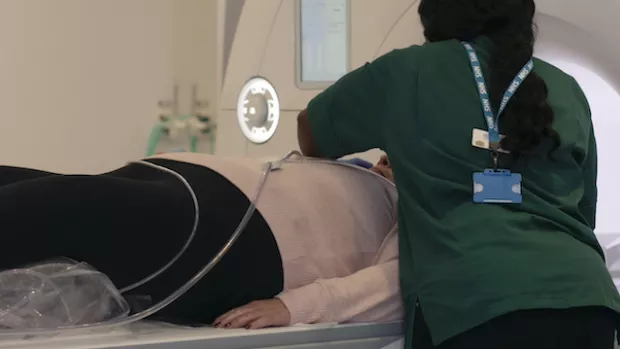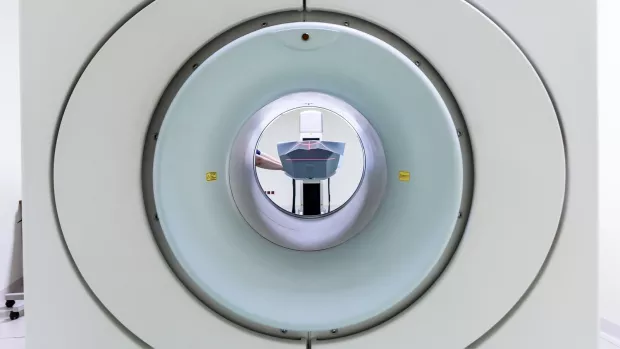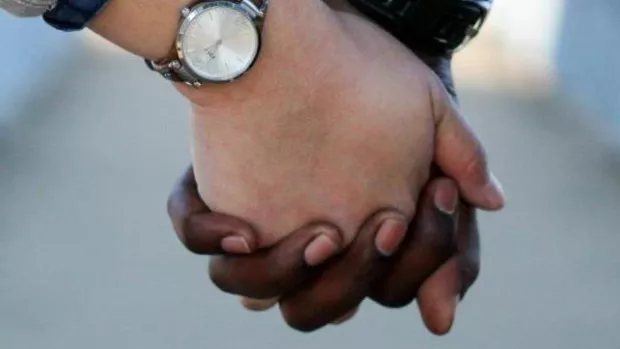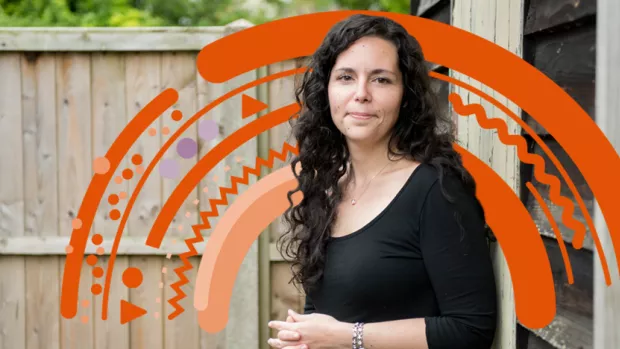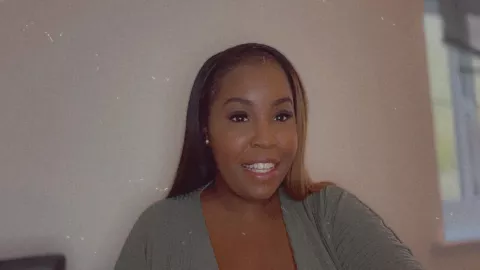
My brother’s MS diagnosis helped me to find peace during my own
When were you diagnosed with MS? What was your journey like?
I was diagnosed with relapsing remitting MS on 8 March 2016. Unfortunately, the lead-up to my diagnosis was hell. I was misdiagnosed five times while I had pins and needles in the soles of both feet. And it was a case of trial and error until I finally got my diagnosis.
I went for my MRI in November 2015 but wasn’t given my official diagnosis until the following March. In that time, I caught the flu and my body just shut down. I was taken to a more local hospital where I finally got diagnosed.
My slogan is “without peace, there’s no understanding”. And I was at peace when I was diagnosed because of the journey I’d already been on. I finally understood what my body was going through and why.
When was your brother diagnosed with MS? What was his journey like?
Dan was diagnosed on 17 September 2010 at the age of 21. His journey started with his eyes – it was almost like no glasses were strong enough. He had MRIs, lumber punctures and visits to the eye hospital, and that’s where his journey began.
We didn’t know much about MS at the time, so it was like we were learning on the job. He kind of stopped doing most things. And he’s now paralysed from the neck down and non-verbal.
How did your journeys compare at diagnosis?
Dan’s symptoms were different from mine. He didn’t really experience any pain whereas I’m always in pain. By the time I was diagnosed, I was like “Alright, cool!” I never expected it, but here we are.
I was also referred to a specialist rather than an MS team when I was diagnosed. Dan was referred to a team and was treated harsher than I was. And I think that made a big difference in our diagnosis journeys.
Our family’s also very religious. So my parents had a lot of questions when I was also diagnosed. They were asking “why both of them?” and questioned how something like that was possible.
Read more about genetics and MS
Did you get help from any MS organisations?
Because of Dan’s situation, I did a lot of research myself. I also had another friend with MS, but I didn’t know anyone outside of that who looked like me. So I started my own network called Talks with MS.
It’s a diverse and inclusive group with over 400 members. And it’s a place for people to come and talk, and buddy-up with people from the community. I also shared my diagnosis on my Facebook page and that’s how I met a lot people in the community.
Visit the Talks with MS Instagram page
How did you feel when Dan was going through his diagnosis?
It was so confusing. One day he’d be fine and able to take my son, Ajani, to the park. The next, he couldn’t. So I was more mindful of my emotions and how it would affect Ajani. And how I could explain it in a way that didn’t confuse him.
I almost grieved for the person my brother used to be. I did this quite early on in his journey, so nothing fazed me after a certain point. Even if I had to wipe his mouth for him or push him in a wheelchair, I still saw him as him.
How did you cope at the time?
I dug deep into everything about MS. I read to help myself understand what was happening. I didn’t find medical professionals to be helpful at the time. And there was more of a taboo around MS back then.
These days, you can type MS into Google and find thousands of pages to look through.
I didn’t fully know what Dan had gone through until I became paralysed myself. And even though I might kiss my teeth at him sometimes, experiencing that myself changed how I see things.
Our family and friends were also made aware of Dan’s situation within weeks of his diagnosis. Everyone has been on this journey with us and the support’s always been there. But it’s definitely been a journey, even with support.
How has MS affected the relationship between you and Dan?
Dan’s been non-verbal since 2017. So the way we communicate has had to change. Sometimes I’ll be talking to him or playing some of his favourite old school songs and he’ll laugh or smile. And having more of an understanding of what he’s gone through means I feel closer to him. But I can’t say how it’s made him feel because there are no words for him to express that.
What are your hopes for the future?
For Dan, I hope for a change in his circumstance. But I honestly don’t know. I’ve seen people who’ve recovered from relapses in amazing ways. And my recovery from paralysis gives me hope too.
Read about Terri's recovery in her book, Paralysis to Heels
What would you say to other people in your situation?
I express gratitude whenever possible. So my leg might be hurting right now, but I can still walk to my car.
I try to think of it this way: yes, MS is a life sentence. But it’s not a death sentence. You might have a diagnosis on paper but it doesn’t define you. You still have your life.

